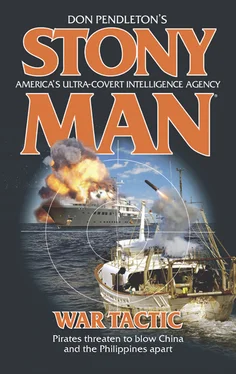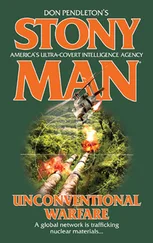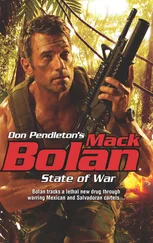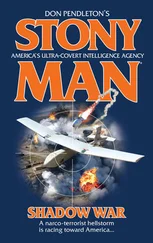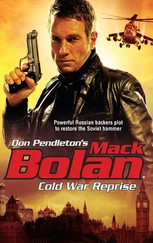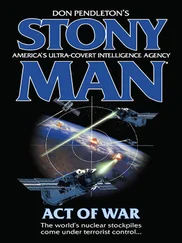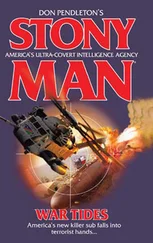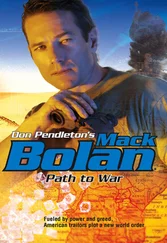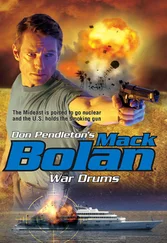The thought brought a smile to the pirate’s lips.
If only my father could see how far I’ve come, he thought. There was real bitterness in him, he knew. But a man was what he was. He remained as he had been made.
“We are taking the ship now,” Wijeya said. He pressed the working half of the binoculars closer to his eye and recited the registration number of the vessel. “This is the one you specified, yes?”
“Yes,” said the voice. “Are you in the correct position? The locations have been calculated for specific impact. It’s a pattern. I don’t want you to deviate from it.”
“This you say to me every time we speak. I waited until we reached the coordinates you specified. I was careful. I am always careful.”
“See that it remains that way,” the voice warned. “Your success in the region is thanks to the XM-Thorns I’ve been sending you.”
“Yes. This I know,” said Wijeya. “Very well. You promised us more. And more rifles. More ammunition for them.”
“You will have it,” the voice promised. “Put in to your usual port and I’ll make sure the provisions are waiting for you. I always do.”
“Yes,” said Wijeya. “This I know.”
“No prisoners this time,” said the voice. “Leave none alive.”
“But—” Wijeya began.
The line went dead. Wijeya took the phone from his ear and stared at it. Always, it was the owner of the voice who cut off the transmission. Never had the mysterious speaker bothered with parting sentiments. The pirate switched the phone to standby, noting the battery charge percentage, and tucked it back into his pocket.
He told himself that this invisible man, the voice, was a means to an end. He had first encountered emissaries of the voice while in one of the ports of call his crew frequented. Those had been lean days, scratching out a living taking whatever vessels they could, never daring to attack a ship much larger than their own. Controlling the crew, in those days, had likewise been difficult. It was back then that Wijeya had been forced to fall back on his Silat training; the martial art of the blade that, when he had learned it as a child of privilege, had been little more than theory to him.
Again he laughed to himself. When his father had agreed to pay for private lessons from a wizened old man from a nearby village—a man renowned for his Silat prowess—no doubt Wijeya’s parents had thought the move one to keep their rebellious son out of trouble. Give him the discipline of a martial art, they had thought. Give him something to fill his idle hours. Yet today Wijeya had killed no less than four men in personal hand-to-hand combat with his kerambit knives. Three of those had been crew members who sought to take the title of captain from Wijeya. One had been a drunken fool in a port town, who had been quicker with a switchblade than Wijeya would have thought the old drunk capable. The scar that now curled across Wijeya’s abdomen was proof of that.
He told himself to focus on the task at hand, to stop wool-gathering while his face grew slick with droplets of sea foam. Once more he pressed the working lens of the binoculars to his eye. Behind him, he could hear Lemat, the little Frenchman, bearing the walkie-talkie. Lemat’s approach was wreathed in static. Wijeya smiled at his own joke.
“Captain,” said Lemat. “The launches report they are ready.”
“Tell them to begin the attack,” Wijeya directed, never taking his eye from the motor craft circling the target freighter. Sporadic gunfire continued from the deck of the target ship. That was a surprise, honestly.
Shipping lines, despite the increased dangers to their freight from pirate crews like Wijeya’s, had felt the turn of the global economy just as had everyone else. They were always looking for ways to cut costs. One of the methods they employed was cutting back crews, which left little extra manpower for such things as guards. Wijeya knew that some of the ship captains had taken it on themselves to purchase, quite illegally, arms with which to equip their men. The idea was that in the event of pirate attack, the crew would take up weapons and fight off boarders. Every major shipping company had corporate policies forbidding this practice, but men had a way of ignoring rules that could get them slaughtered.
Still, it would not matter. Not in this case.
“Move us in,” Wijeya told Lemat. “Prepare to support our boarding crews.”
Lemat gave the order. The Penuh Belut began to vibrate beneath him as her diesel engines thrummed to life. Large quantities of black smoke began to spew from the aft section of the old boat. Wijeya knew every inch of the dhow ’s deck plates, every streak of rust, every weld. He had spent more years aboard her now than he cared to think.
“Sir?” Lemat prompted. He held the walkie-talkie to his ear. “Mhusa asks if he may fire rockets.”
“Tell him above the water line only,” Wijeya said. He waited while Lemat relayed the order. Moments later streaks of smoke joined the motor launches and the upper decks of their target. The explosions that rang out scattered men from the deck of the larger ship. Soon, automatic gunfire from Wijeya’s attack boats carried across the water.
The automatic weapons were nothing special, but they were reasonably new and all in good working order. Kalashnikov rifles were plentiful in this part of the world. A man with enough cash could purchase a warehouse full of them for twenty dollars US each. But Wijeya’s benefactor saw to it that the flow of ammunition for the weapons, new and reliable magazines, and parts for repair was steady. The voice knew Wijeya’s major ports of call in the area and never failed to arrange for supply drops.
More important than the automatic weapons, however, were the XM-Thorns. The high-tech rocket launchers had given Wijeya the power to take on craft many times his size. The rockets and their launch tubes were made of a high-tech, carbon-fiber and alloy combination that resisted salt corrosion, making the weapons light and easy to store aboard ship. With the XM-Thorns, it was possible for Wijeya’s launches to attack even a cruise liner if they so chose.
Large craft had a number of weaponry that could be employed against pirate ships. The bigger the enemy craft, the greater the danger. Some of the weapons employed by captains in the region were approved by their corporate masters and some were not. While cowardly businessmen disapproved of giving crewmembers SKS rifles or handguns, they were happy with anything that was not a gun that could still drive away the likes of Wijeya. One of the most popular options, given the vast quantity of water available, was high-pressure hoses. Another, employed mostly by the affluent cruise liners, was a sound cannon. Wijeya, before his benefactor had found him, had once been on the receiving end of such a sound weapon. It had been…unpleasant.
But everything had changed one day in a seedy bar in Manila. Wijeya and what was left of his crew at the time—Mhusa, Lemat and two or three others—had been drinking away their latest failure, determined to use up the last of their coin. Staring into the bottom of a dirty glass full of rum, not sure what he would do next or how he would survive, Wijeya had thought perhaps he was destined to keep failing at life. Bitter recriminations had rolled through his mind, waves crashing on the breakers of his failed dreams.
But then a stranger had handed him a business card.
Wijeya remembered looking up at the stranger. The man had the look of a go-between, a messenger. Nothing about his features was remarkable. The stranger had nodded once at the card then disappeared into the smoky darkness of the bar.
On the card was written nothing but a phone number. It had taken a few more drinks before Wijeya’s curiosity got the better of him. Expecting some sort of scam, some kind of confidence routine, he had dialed the number, prepared to take out his frustrations on whoever answered. It would feel good to shout at someone. Perhaps then he would get into a fight. With the cracked receiver of the bar’s pay phone to his lips, he listened to the ringing at the other end while sizing up the other patrons in the bar.
Читать дальше
